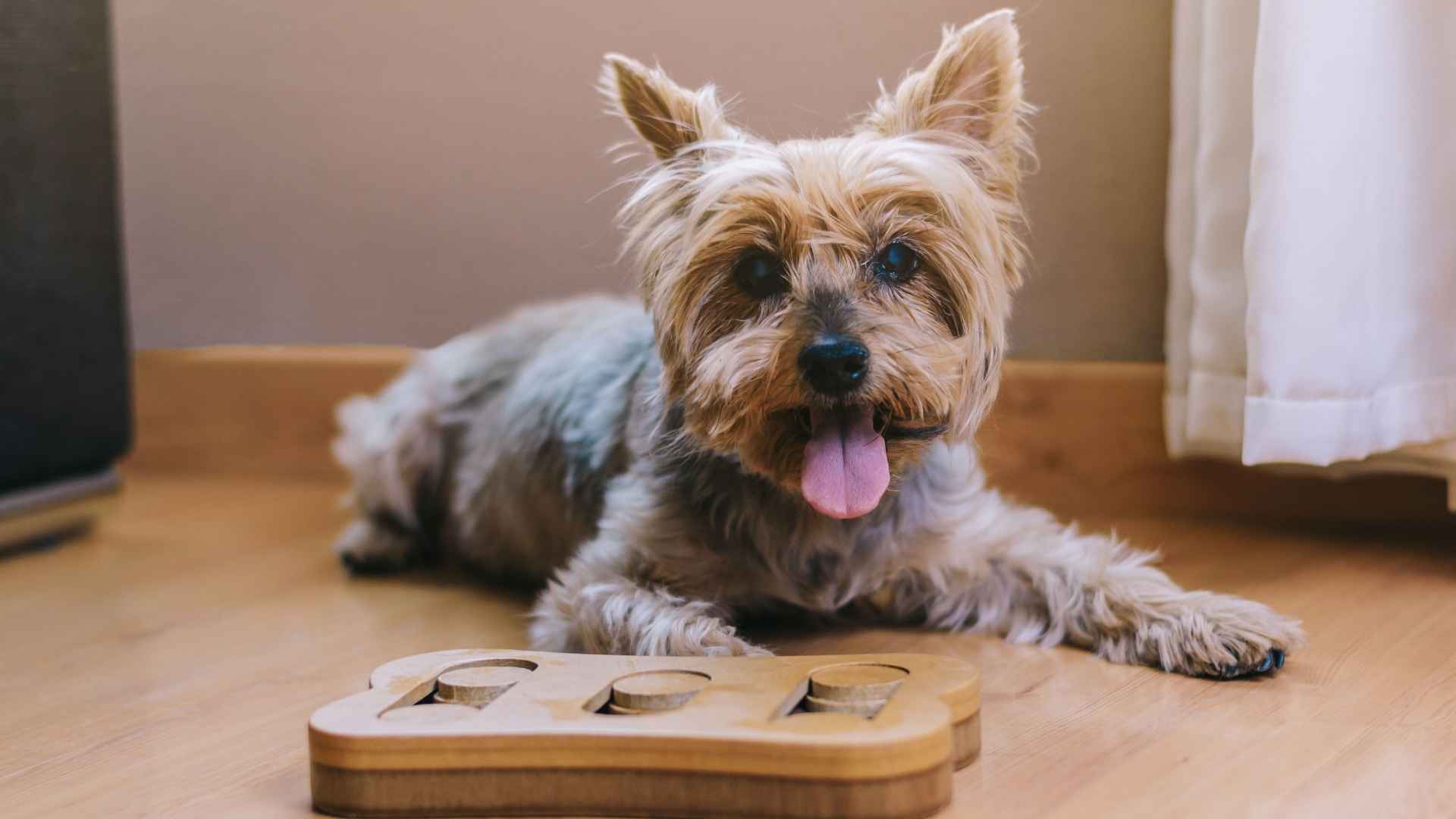Some dogs chase balls. Others chase squirrels. But then there are the brilliant pups who chase answers. These clever canines don’t just play with toys. They solve them. Puzzle-solving isn’t just fun for these furry Einsteins; it’s a way of life.
These breeds aren’t just good at learning commands—they’re quick learners that love mental challenges, brain games, and interactive toys. In fact, according to renowned canine psychologist Dr. Stanley Coren, the brightest dogs can understand new commands in under five repetitions and obey the first command 95% of the time, as per Wikipedia. Now that’s a smart dog!
So, if you’re ready to meet the breeds that treat puzzles like play and exercise for the brain, keep reading. We will take a look at the top dog breeds that master puzzle games and toys.
Dog Breeds That Master Puzzle Toys
1. German Shepherd
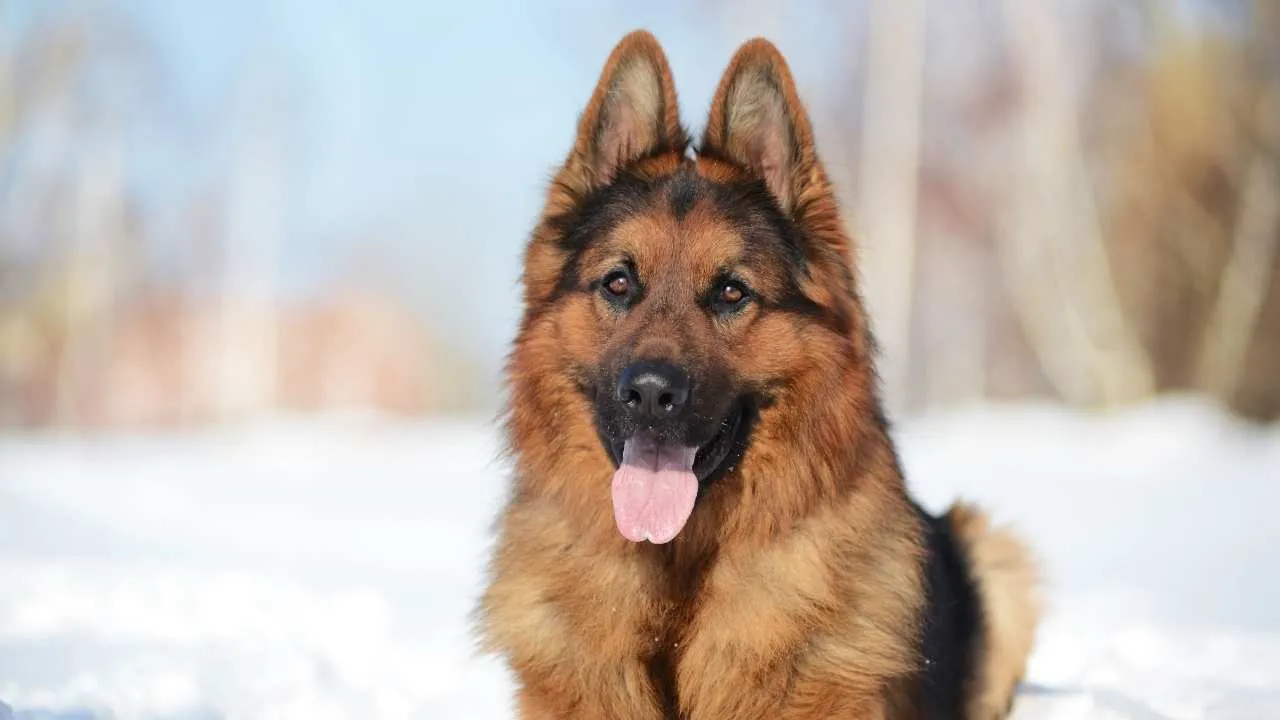
Loyal, focused, and always mission-ready, the German Shepherd is one of the most dependable working breeds—and that includes when it’s time for puzzles. Known for their success in police work, military roles, and service dog duties, this breed doesn’t just respond to commands—they evaluate them.
Put a treat puzzle or a food toy in front of a German Shepherd, and you’ll see a dog who treats it like a task. Their natural instinct to complete jobs pairs perfectly with interactive toys and brain games. Because they’re so trainable, these dogs thrive in obedience training and excel at mastering new tricks.
What Makes Them Special?
Many German Shepherds are used as therapy dogs, offering emotional support and comfort to people in hospitals, schools, and care facilities. Their calm and attentive nature allows them to form strong bonds and provide reassurance when it matters most.
2. Poodle
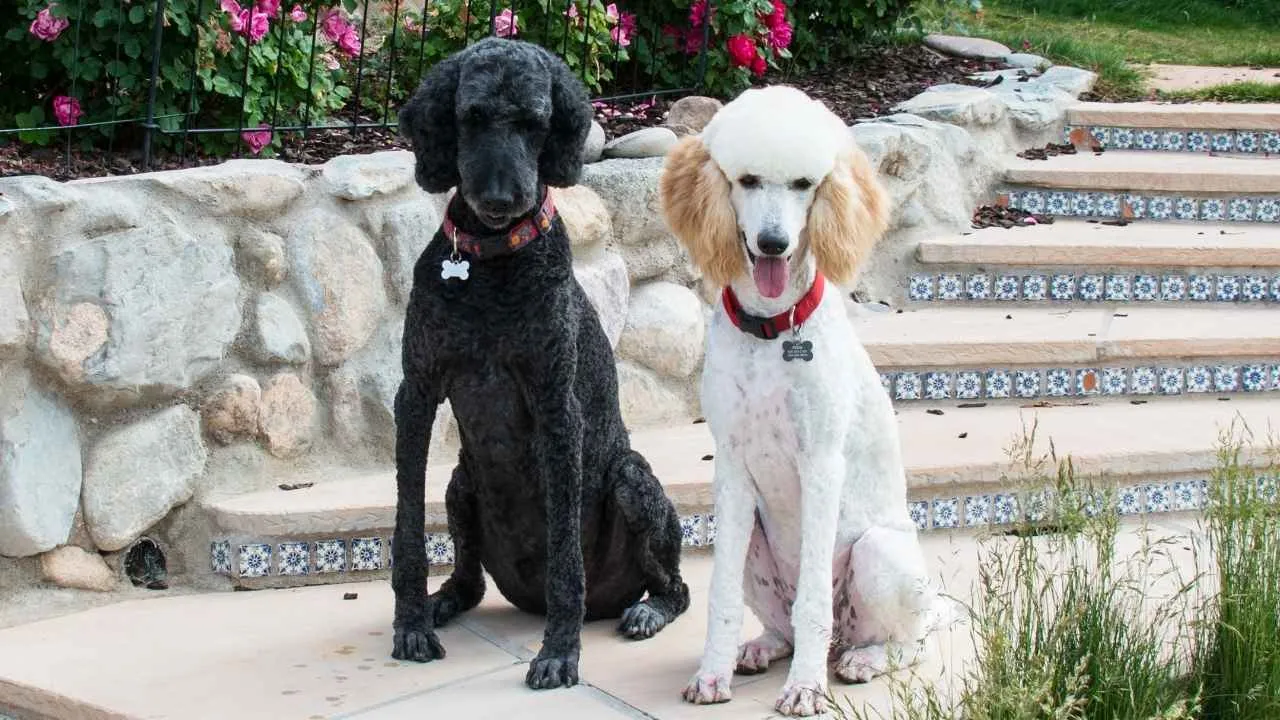
Poodles, especially the Standard variety, are natural-born thinkers with a strong instinct for problem-solving—traits rooted in their original role as water retrievers. In fact, AKC states that they’re one of the most intelligent dog breeds, ranking just behind the Border Collie in intelligence.
They were bred to make quick decisions in unpredictable environments, and today, that intelligence shows up in how effortlessly they take on interactive plays and food puzzles.
What sets Poodles apart is their ability to combine mental stimulation with physical finesse. They’re quick on their feet, agile in movement, and lightning-fast in their learning.
What Makes Them Special?
While their signature coat may require regular upkeep, the Poodle’s fur is hypoallergenic for many people, making them a popular choice for allergy-sensitive households. Their unique coat also allows for a variety of stylish trims and cuts.
3. Border Collie
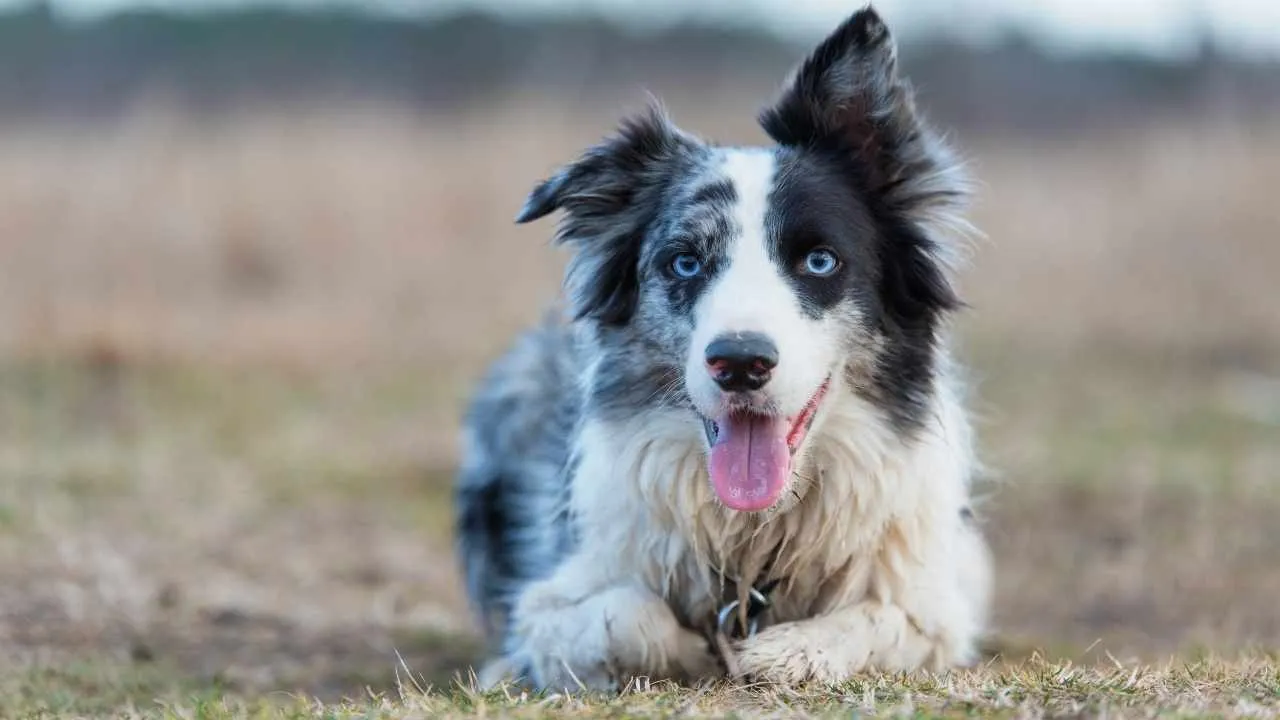
If dog breeds had IQ scores, the Border Collie would be at the top of the chart. This high-energy herding dog was built for thinking on the fly, thanks to generations of working in fields, moving sheep, and making quick decisions with little instruction.
Border Collies thrive when they have a job to do. Leave them without a challenge, and they might just invent one—rearranging furniture, figuring out how to flip lids and open cabinets, or turning your home into a personal agility course.
They need daily mental stimulation just as much as physical exercise, making them the perfect fit for active dog owners who love engaging their pup’s mind.
What Makes Them Special?
One of the Border Collie’s most impressive traits is its incredible focus—a skill that’s vital when herding livestock. Even in noisy or distracting environments, these dogs can lock in on their task with near tunnel vision, guiding large groups of animals with steady precision and unwavering control.
4. Shetland Sheepdog
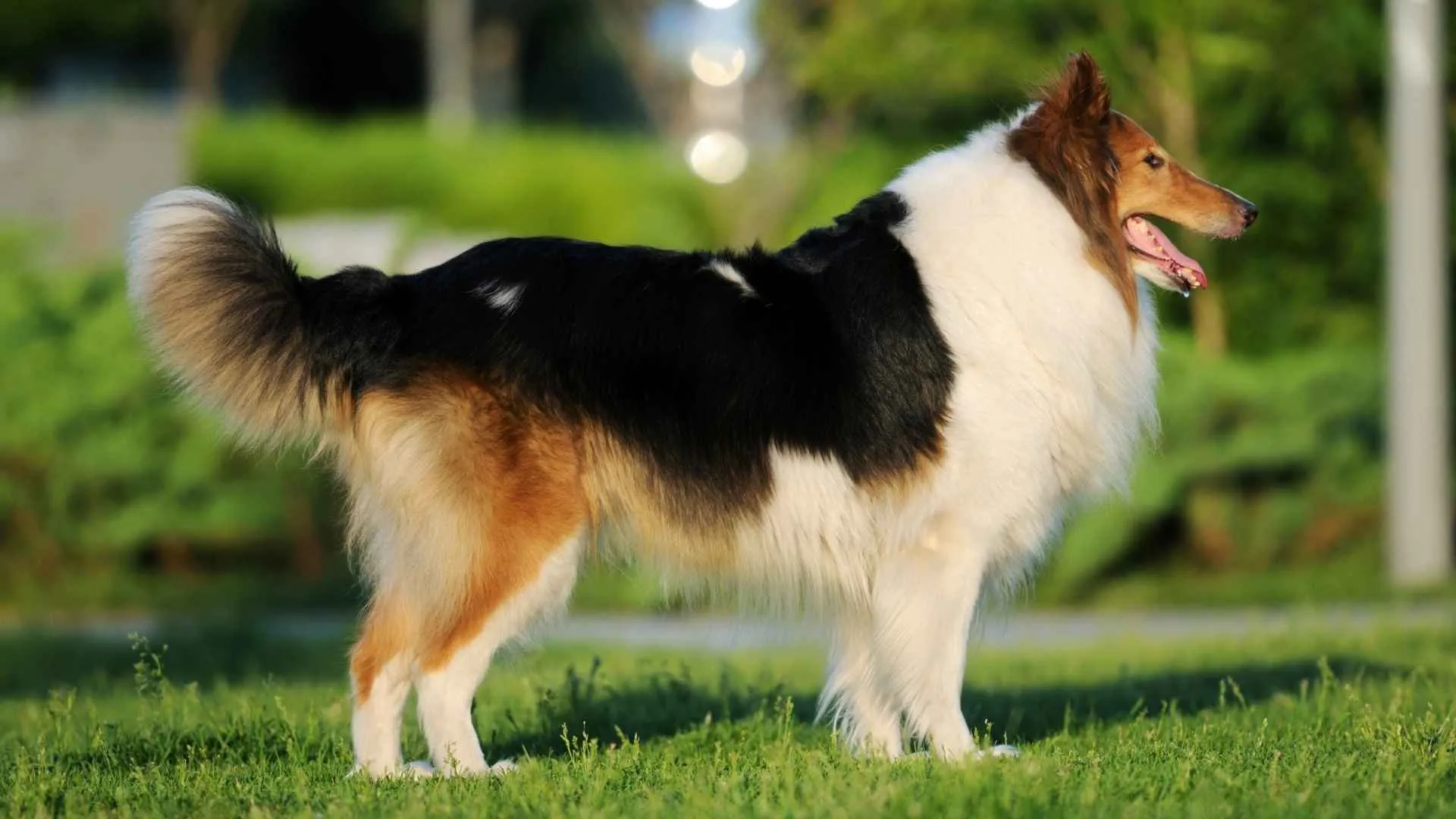
The Shetland Sheepdog, affectionately known as the Sheltie, might look like a miniature Lassie, but don’t be fooled by the fluff—this breed is as brainy as it is beautiful.
Originally bred to herd sheep on the rugged terrain of Scotland’s Shetland Islands, Shelties had to think quickly, act independently, and adapt to whatever the environment threw at them.
That same sharp thinking carries over into modern homes, where Shelties absolutely shine in interactive play, obedience training, and anything involving a puzzle toy.
What really sets Shelties apart is their emotional intelligence. These dogs are incredibly in tune with their humans, often responding to cues and moods with an almost uncanny sensitivity.
What Makes Them Special?
Shelties are naturally alert and attentive, which makes them excellent watchdogs. They’re quick to notice anything unusual in their environment and will bark to alert their owners, often well before you notice something’s up.
5. Doberman Pinscher
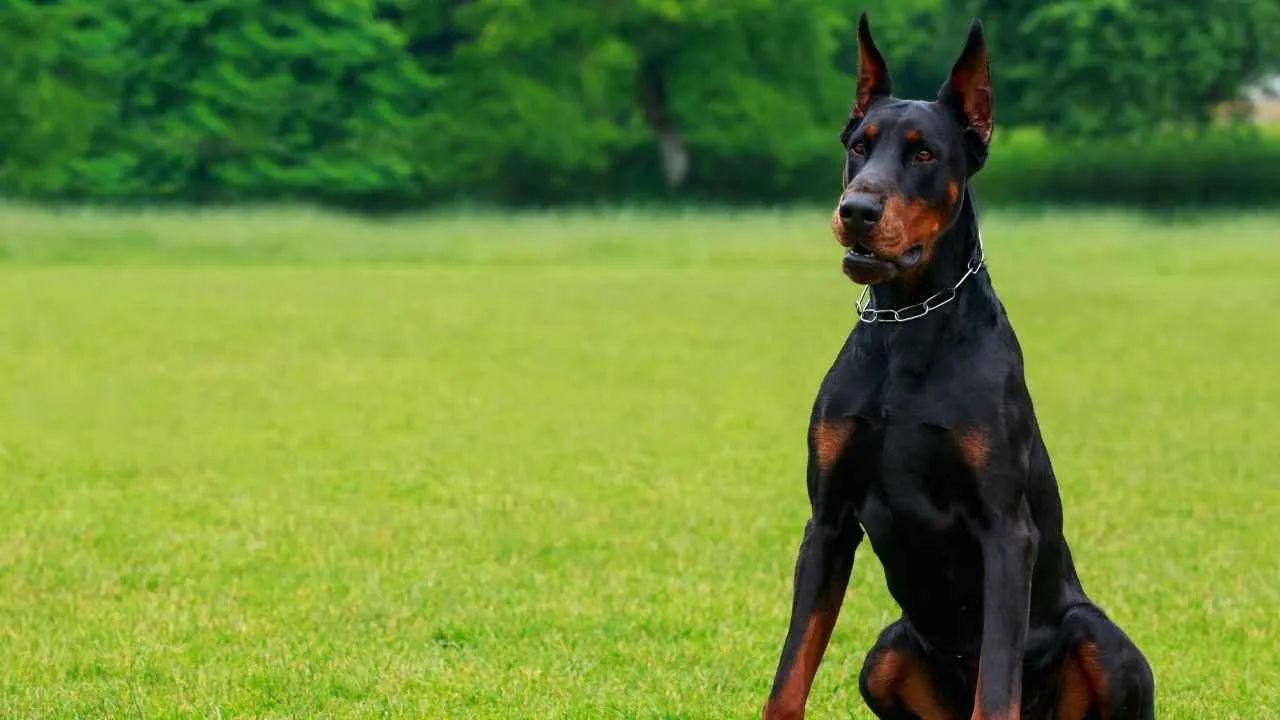
Sleek, powerful, and incredibly sharp, the Doberman Pinscher is a natural-born thinker. With roots in protection and working roles, today’s Dobermans are far more balanced in temperament, making them loyal family companions with a strong mind and a gentle side (with proper training and socialization, of course).
This intelligent breed is highly trainable, with an intense focus that makes them excellent at obedience training and complex routines.
They learn fast—sometimes figuring out what you’re teaching before you’ve finished the first lesson. That kind of intelligence means they thrive on mental stimulation, and they can become pros at puzzle games, squeaky toys, and interactive challenges.
What Makes Them Special
They served as war dogs in both World War I and World War II, known for their courage and discipline under pressure. But their legacy goes back even further. Since the 1500s, Dobermans have been used as guard dogs, originally bred to protect property and patrol alongside their owners, combining strength, loyalty, and sharp instincts.
6. Golden Retriever
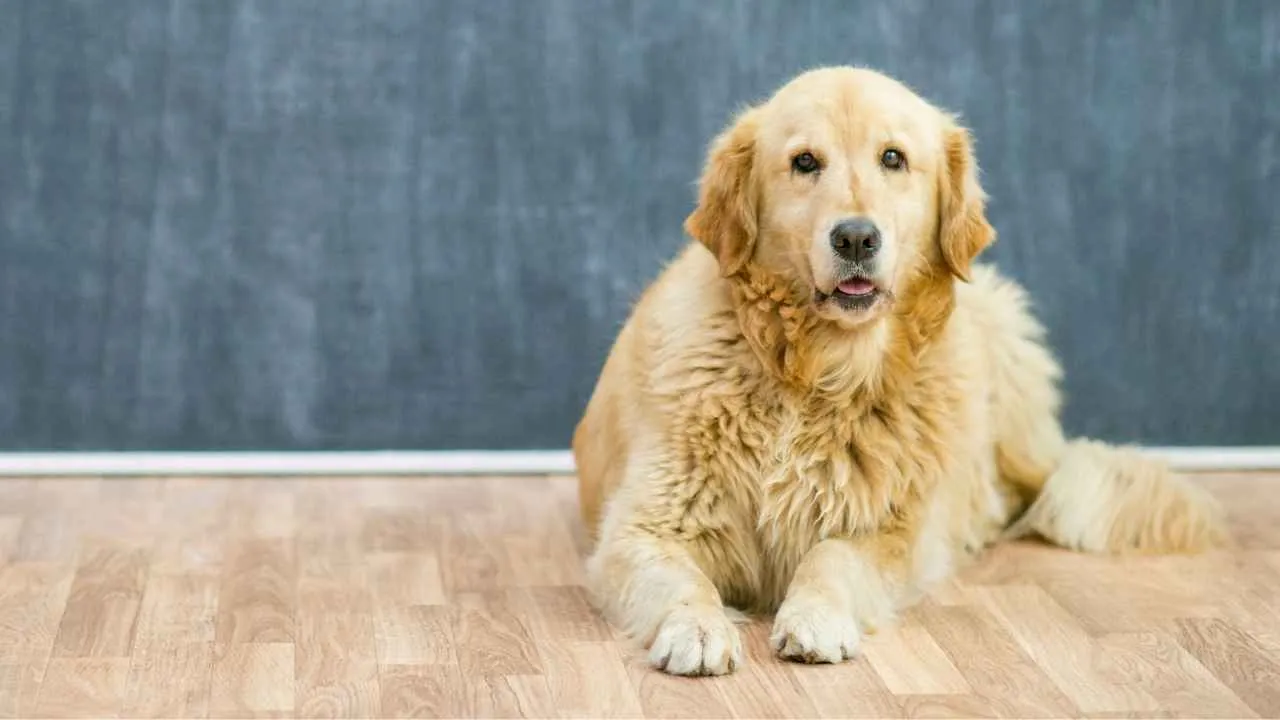
Golden Retrievers are known for their sunny personalities, wagging tails, and goofy charm—but there’s much more going on behind that happy smile. Britannica states that these pooches were originally bred as gun dogs.
Goldens were trained to retrieve game from land and water. This required both physical agility and quick decision-making. Today, that same blend of intelligence and reliability makes them some of the best service and therapy dogs around.
These pups love to please their humans, which makes them easy to teach and a joy to work with. Give them a routine, a few treats, and a little love, and they’ll give you their whole heart in return.
What Makes Them Special
What truly sets Golden Retrievers apart is their emotional intelligence. They have a remarkable ability to sense their owner’s feelings and respond with warmth and understanding. It’s why they’re so often found working as assistance dogs, where offering comfort, support, and companionship is just as important as any task.
7. Labrador Retriever

Labrador Retrievers might be the ultimate goofballs at home, but underneath that playful exterior lies a sharp, hardworking brain. They are eager to please, love to learn, and have a deep emotional sensitivity to their people.
They pick up new tricks quickly—especially if snacks are involved—and are known for figuring out how to open sliding panels, finding hiding spots, and even sneaking into places they shouldn’t. It’s no wonder PetMD ranks them at number two for being the most popular dogs in the US.
Their intelligence and sharp problem-solving skills may be food-motivated, but it’s undeniably effective. Combine that with their gentle temperament and willingness to help, and it’s no surprise they’re one of the top choices for assistance and therapy roles.
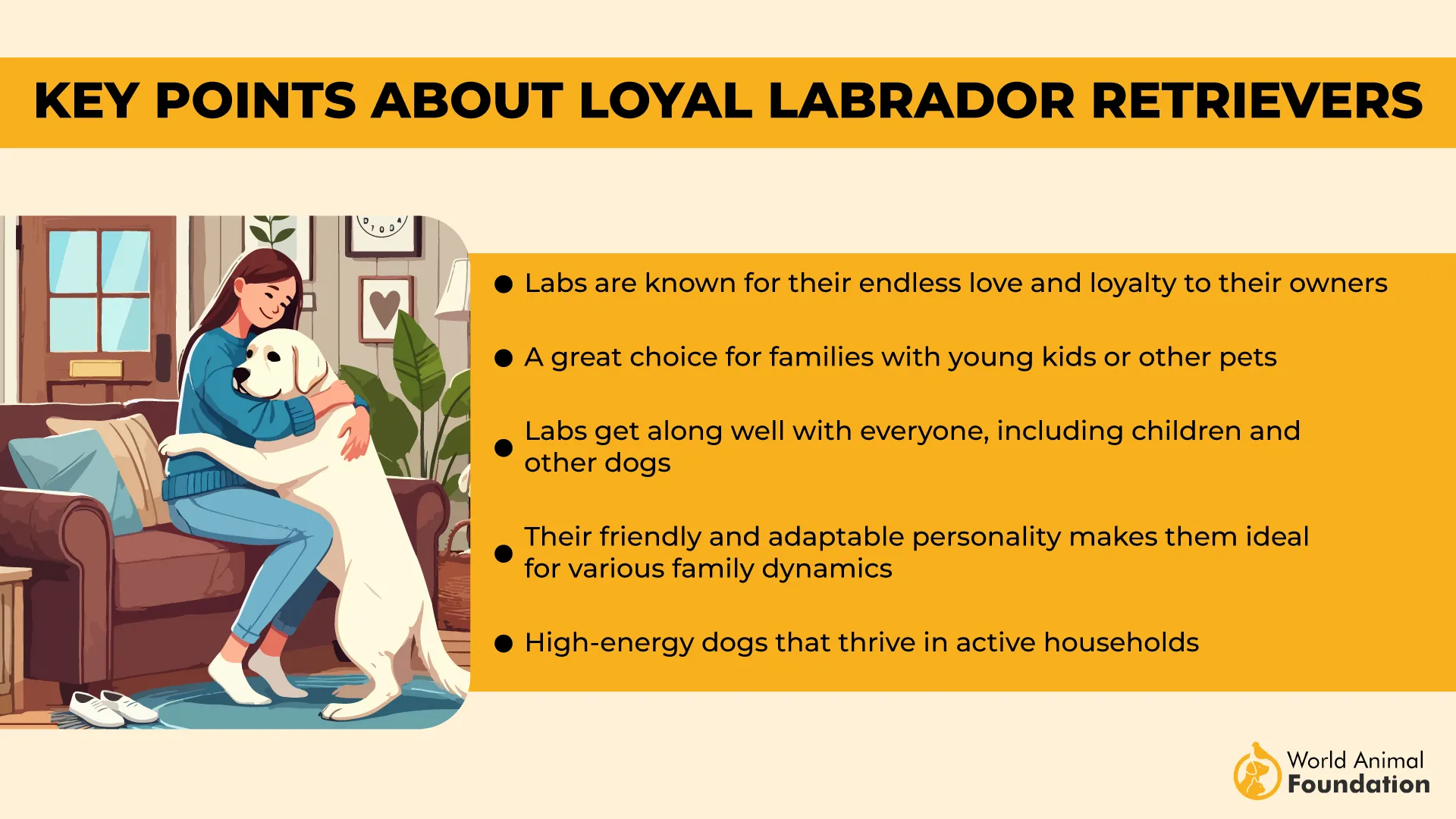
What Makes Them Special
Labradors shine because of their combination of empathy, curiosity, and determination. They’re not only smart. They genuinely want to help and connect with their humans. This makes them perfect for families, support work, and just about any task that involves teamwork.
8. Papillon
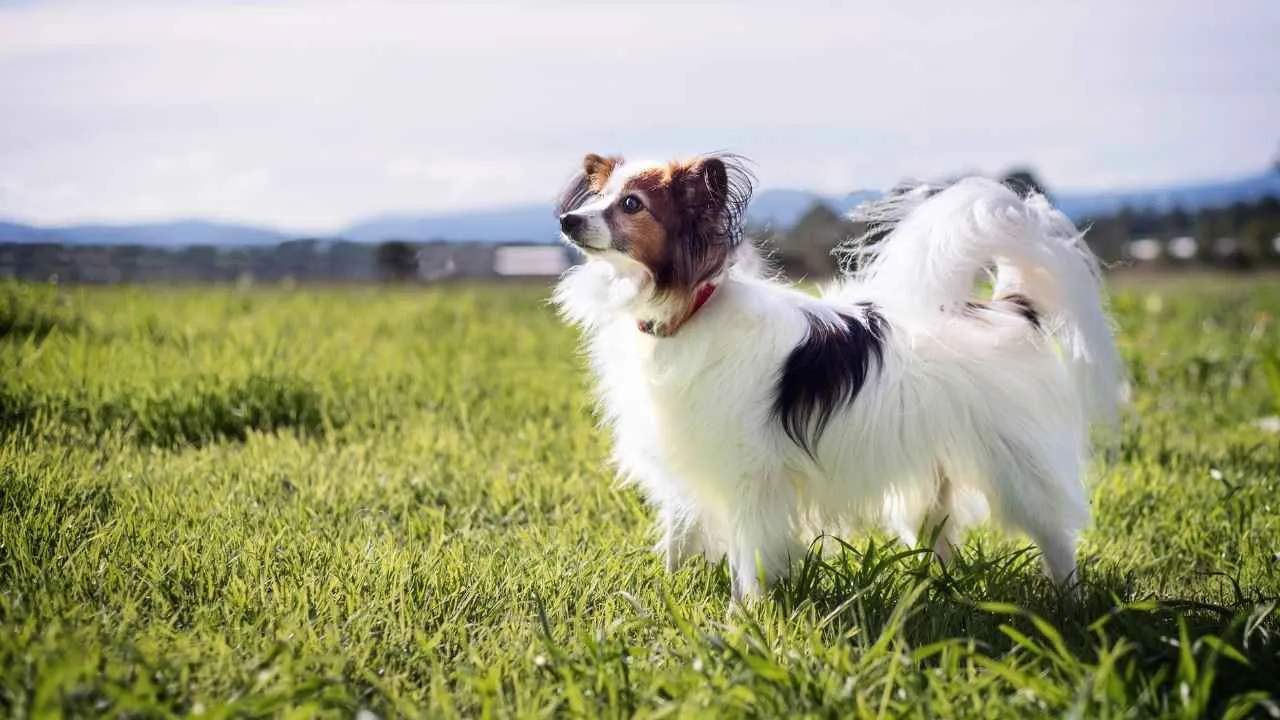
A delicate, fine-boned toy breed known for its distinctive butterfly-like ears, the Papillon gained popularity in France and Spain during the 16th and 17th centuries, often seen as a favorite among European nobility.
These pooches may be small in size, but they are quick thinkers, incredibly responsive, and love nothing more than figuring out how to hide treats or outsmart their human in a game.
Papillons often surprise people with just how quickly they pick up on routines and patterns. While other dogs might need repetition, the Papillon is often one step ahead, already guessing what’s coming next. Their enthusiasm, paired with their lively spirit, makes them a dog loved by those who enjoy a fun, clever, and endlessly entertaining companion.
What Makes Them Special
Their small size and adaptable nature make Papillons perfect for cozy homes or apartment living. They don’t need a lot of space—just a bit of attention, some playful challenges, and the chance to show off how clever they really are.
9. Australian Cattle Dog
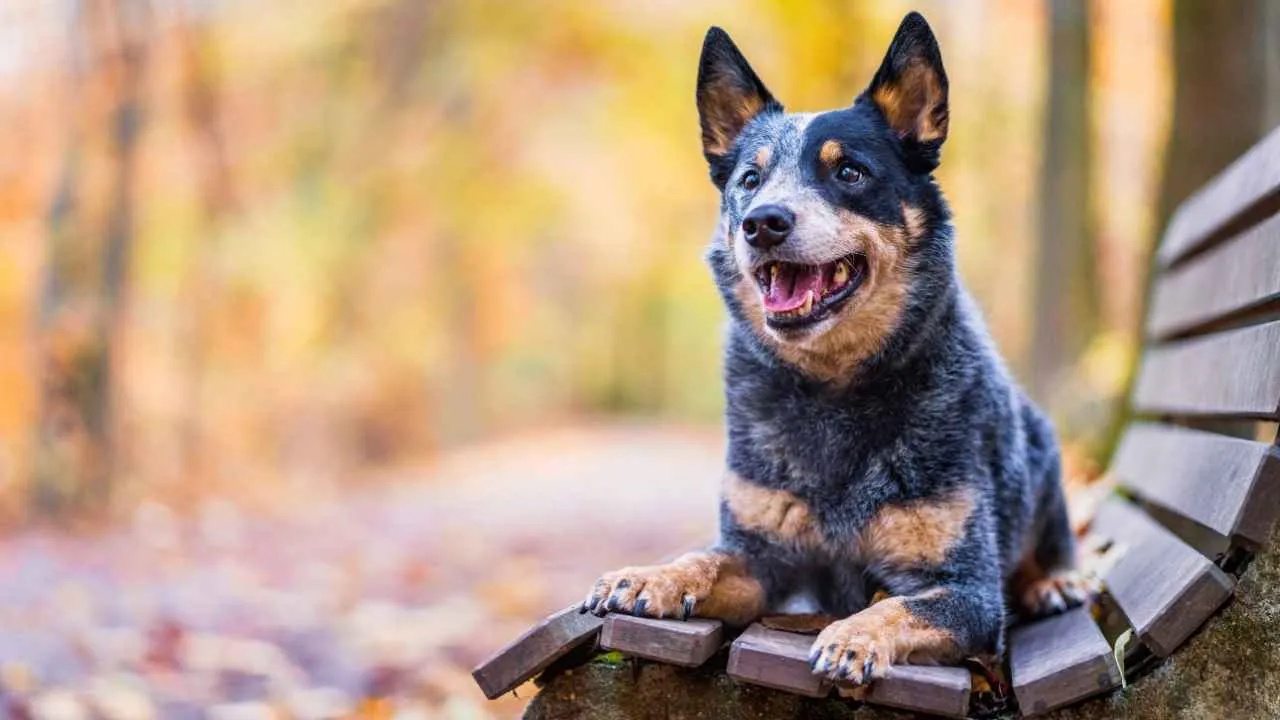
Rugged, determined, and undeniably smart, the Australian Cattle Dog is a breed built for work—and it shows. They might come off as a little aloof or independent, but that’s part of their brilliance.
These dogs are capable of figuring things out on their own and often prefer to do things their way, especially if it’s more efficient. While some may call it stubbornness, it’s usually a sign that they’ve already found a smarter solution.
They thrive in mentally demanding environments and need challenges to stay balanced. If you don’t give them something to do, they’ll make their own game—and you might not be ready for it!
What Makes Them Special
Often called “Velcro dogs,” Australian Cattle Dogs tend to stay close by, always keeping an eye on their humans. Their distinctive coat patterns make each dog truly one-of-a-kind, and their sharp awareness ensures they’re always alert, attentive, and ready for action.
Conclusion
When it comes to canine intelligence, it’s clear that problem-solving goes far beyond fetching sticks or learning basic commands. Some dogs are natural thinkers, driven by curiosity, focus, and a deep desire to engage with the world around them. These clever pups don’t just follow instructions—they interpret, adapt, and often surprise us with their ability to solve challenges that even stump us from time to time.
For dog owners, this means more than just owning a smart pet—it means being ready to meet that intelligence with patience, creativity, and plenty of mental stimulation. After all, a mentally fulfilled dog isn’t just well-behaved—they’re confident, connected, and genuinely happy.


